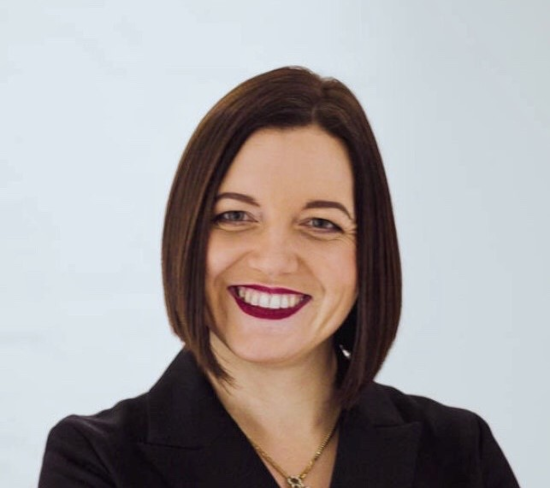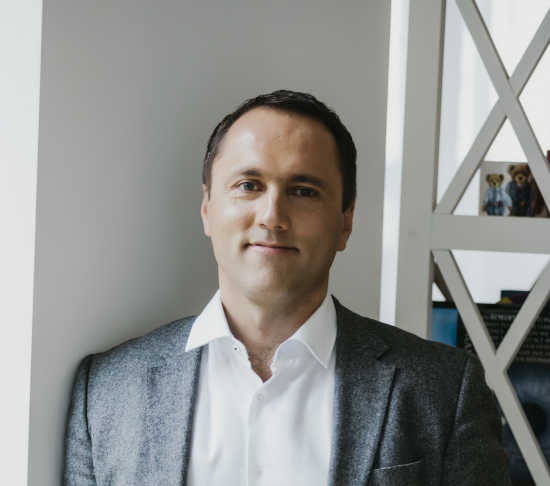Futures thinking is useful for both business and personal development
Artis Birziņš (pictured) is a Latvian who has been living and working in Japan for 20 years. He explores the big trajectories and trends that shape us as individuals, organisations, and the world at large. Birziņš conducts lectures and classes within the Futures Thinking course at Rīga Stradiņš University (RSU) and explains complex matters in simple terms – how and where technology is going, and how we can better understand, see, and seize opportunities.
Birziņš has a background in IT and currently is a director of data & AI delivery management at Avanade, a joint venture between Microsoft and Accenture in Tokyo. He is also a lecturer at the Nagaoka University of Technology and serves on the boards of several organisations in the fields of environmental protection, real estate, and IT governance.
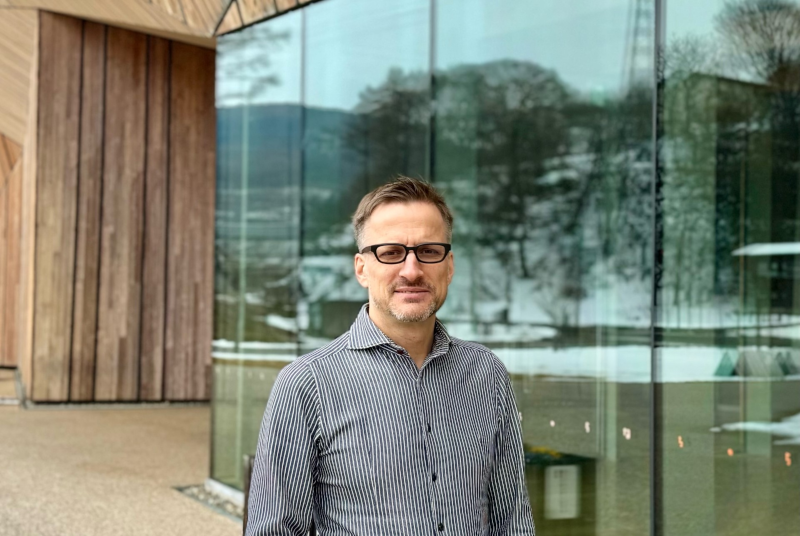 Photo from private archive
Photo from private archive
To avoid feeling helpless, get to know future scenarios
RSU master’s students really like the Futures Thinking course. In the autumn semester of 2023, all master's students in the Management of International Marketing and Business and International Business and Law programmes took this course.
When asked why this course is being offered to prospective marketing business management and law professionals, Ieva Kalve, PhD in Economics, director of the International Marketing and Business Management master's programme, replied: ‘When Birziņš gave me a brief insight into the study course I immediately understood that this is exactly what our master's students need. He flew in from Japan and delivered the course in person.
I participated in all the classes with the students and don't regret a second of the time I spent in this process! It made us think about different scenarios for the future and showed us the way to think so that we don't feel helpless and confused. The lectures and the materials that were used were very valuable and interesting –
we got an insight into what’s going on in the world, learned where technology is going, and what futurologists and other pundits think about it.’
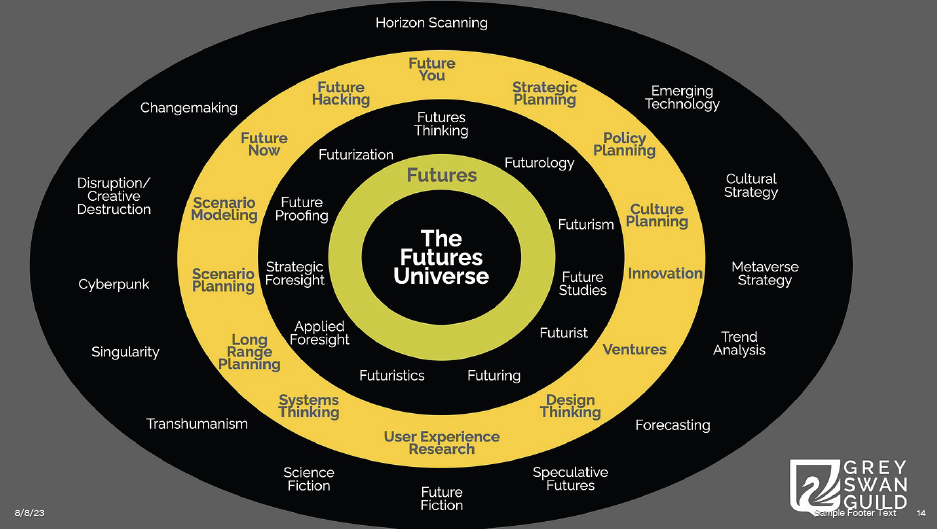 ‘This slide is my absolute favourite one from his presentations,’ says Ieva Kalve, programme director
‘This slide is my absolute favourite one from his presentations,’ says Ieva Kalve, programme director
Three questions for Artis Birziņš
Why did you create the Futures Thinking course?
We live in a world of increasing pace and change, full of risks and opportunities.
Futures thinking is a discipline that has been developing for centuries to help us build a clearer vision of the future and prepare for change.
The course started with my lectures on artificial intelligence as the most important technology of the fourth industrial revolution at Nagaoka University of Technology in 2020. It was in this context that I became deeply interested in the discipline of futures thinking, or futurism. In its broader interpretation, I realised that this subject is of great importance to my own individual growth as well as for organisations, countries, and the world at large. Everyone can find something of great interest and value there.
Another important source of inspiration is my great-grandfather, who at the age of 18, in 1907, wished to understand the big world better. To do this, he went to Hamburg and worked with a newspaper printing press – a rapidly growing high-tech machine of the time. In 1933, he published his book Kad nāks labāki laiki? (When Will Better Times Come?) in Latvia, which looks at the trajectories of the world and the future from the point of view of that time. The book was very popular and has been reprinted several times. It is now available for everyone in the digital archive of the National Library of Latvia.
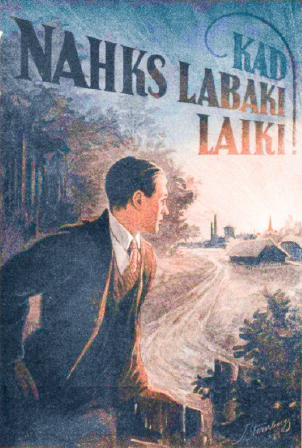 The cover of Artis Birziņš's great-grandfather's book When Will Better Times Come? (published in 1933). From private archive
The cover of Artis Birziņš's great-grandfather's book When Will Better Times Come? (published in 1933). From private archive
How is this course useful for future marketing, business administration, and law students?
In this course, you will learn hands-on future forecasting methods and the basics of imaginative leadership.
The course gives a broader view. In it, we looked at the major trends, trajectories and technologies that shape the world today and will in the future, the changes that lie ahead, from the big history project to artificial intelligence, metaverse, biotechnology, and beyond.
Using advanced futurist tools and imaginative leadership, we work together to predict and prepare for potential future developments on topics of interest to students individually or in groups. For example,
creative marketing professionals learn new methods of imaginative leadership, while lawyers actively discuss the paradoxes of the new world we will live in,
e.g. the legal liability of digital human clones, etc. Of course, understanding the big picture and trajectories is crucial in the context of developing different strategies for both business and personal growth.
What gave you the most satisfaction in working with students at RSU?
The lectures were very interactive. I think we all benefited from collective thinking and activating our imagination. We were able to generate ideas and results that would not have been possible on our own.
At the end of the course, we had a hackathon of future product ideas for the next 10-15 years. The product proposals created by the groups used the techniques they had learned and were of very good quality. They were even viable to further be launched in today's venture capital industry.
Student feedback on Futures Thinking
Futures Thinking allowed us to step out of our daily routine and comfort zone and open up our thinking to a broader perspective. It not only helped me develop abstract thinking, but also gave me the opportunity to grasp things and plan for the long-term – much broader than a five-year efficiency plan.
Egija Dzene, 1st year student in the International Marketing and Business Management master's programme
Futures Thinking was an interesting, informative and exciting course that offered a great opportunity to look at the future today. The main benefits of the course were a deeper understanding of global trends – the dynamics towards the future, the skill to model the future – to build strategies, understand the role of AI and the potential of ChatGTP in the present and in the future, the role of nature, humanity and technology in the future.
The positive atmosphere, practical groupwork, conversations with the visiting lecturer and group mates, the materials and information sources used – all of this was a beautiful and exploratory learning experience!Artis Stieciņš, 1st year student in the International Marketing and Business Management master's programme
Related news
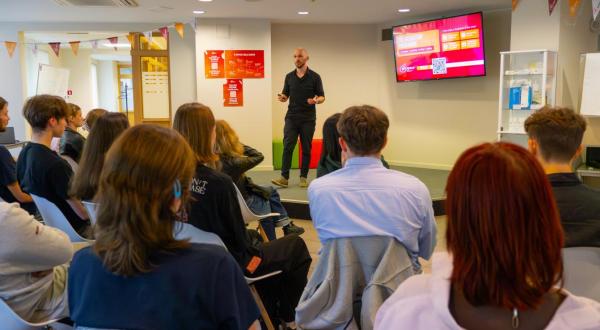 Develop your business skills and bring ideas to life with the B-Space incubation programmeFor RSU Employees, For High School Students, For Students, Innovation
Develop your business skills and bring ideas to life with the B-Space incubation programmeFor RSU Employees, For High School Students, For Students, Innovation